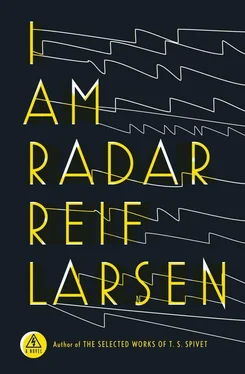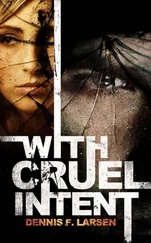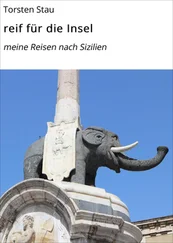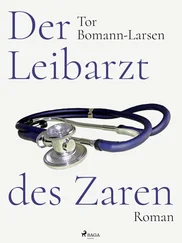“I’m grateful so many of you are here to witness another child becoming a Christian,” Father Bajac said in Serbian, resting his un-Bibled hand on the lip of the font. “This is a rebirth that we all should witness, that we all can learn from, again and again. Jesus teaches us it is never too late for a second chance.”
The priest produced a vial from inside his robes and then poured a sprock of oil in the shape of a cross onto the surface of the water. Kermin watched the oil swirl and curl back into itself, like a man slowly placing his arms on his hips. Father Bajac plucked Radar from him, letting the old blanket fall to the ground. He thumbed another cross above the child’s head. Radar hung there, quiet and resplendent, and then he was dunked three times. The water gurgled and splashed with each entrance. His pitch-black skin glistened in the hard fluorescent light of the church. The congregation leaned forward as one, peering at the baby, the wafts of incense swirling around him.
Before they fled at the end of the war, Kermin and his mother used to attend the services in their tiny village church outside Knin. He would lean against the folds of his mother’s dress, mouthing the words to the Gospels without making a sound, his feet tired from standing so long. They stood for the whole service to show their reverence for God, his mother had explained, and Kermin had nodded as one nods when one does not understand but knows that one should understand. Dobroslav was away, fighting Tito’s Partisans way up in the hills with Vojvoda Momcilo Dujic, the famous priest turned Chetnik warrior. Dobroslav was the vojvoda’ s personal radioman, a source of pride that Kermin reminded the other boys in town of every chance he got. Dobroslav had once told Kermin how the vojvoda would sometimes summon him for his radio microphone in their mountaintop bivouac and then proceed to deliver sermons to no one but the empty valley, filling up forgotten frequencies. “My words are only for God to hear,” said the vojvoda. Retreating deeper into the recesses of his mother’s dress, Kermin found himself wondering whether his father and the vojvoda were out there now, high up in the mountains, broadcasting one of their radio sermons to a God who apparently could be everywhere and nowhere at once.
Charlene awoke in the middle of the night to the sound of an explosion. She shot up in bed, breathing, listening to the chorus of car alarms wailing outside. Next to her, Kermin had barely stirred. She heard Radar give a little hiccuping sob in the other room. She rose. Through the curtains she saw lights flicking on, people emerging onto their front porches.
She went to her son and gathered up his wriggling body. He folded into her, quieting. A small hand tapped at the shelf of her clavicle. She dipped and swayed, mimicking the rocking of a boat, humming a lullaby her mother had once hummed for her. She wondered if there were any words to the song. Outside, a single car alarm still blared through its cycle. She swayed. She was aware of his weight in her arms. She was aware of her arms, the muscles in her arms, holding this weight. She was aware of gravity’s pull, of the thousand invisible forces acting upon her.
All of a sudden, she was enveloped by a kind of vertigo — she had felt this sensation before, though she could not remember when. It was a feeling of being not herself, of being trapped in the wrong body, as if she had recently been miscast in a play that was her own life.
She felt herself listing; she was suddenly worried that she would collapse onto the baby. In desperation, she uttered a single sound, something soft and round, like “Hwah.” And then, just as quickly as it had come, the feeling evaporated, leaving her with only herself again and the hazy memory of a counterfeit existence.
She clutched him. His breath against her neck. Those fierce scoops of oxygen. He was aware of none of her turmoil. He simply was. Breathing.
If only she could just breathe.
When she was sure he was asleep again, she carefully placed him next to his stuffed bear and slipped from the room. Still dressed in her nightgown, she slid into her boots and left the apartment.
As soon as she stepped outside, she smelled it. A stench like singed flesh. Several fire trucks had already arrived. At first she couldn’t see what the source of the smell was. She gagged and closed her eyes. Hand over her mouth, she looked up again and realized why she hadn’t seen anything. There was nothing there: the giant ginkgo tree across the street, such a familiar anchor to their world, was gone. Vanished . A yawning, empty space where its canopy had once resided.
“What happened?” she asked a neighbor who was standing nearby, smoking a cigarette in his bathrobe.
“Lightning,” he said. “Freak strike. Could’ve killed someone.”
And now she saw the huge chunks of wood lying all over the road, on top of people’s cars. One piece had landed forty yards away in a bed of daffodils. The heat from the electricity had burst the tree like a melon. Against a palette of blue and red emergency lights, she stood with her neighbors and watched as firemen worked at dislodging a missile-size log from Mrs. Garrison’s front window. The roar of chain saws filled the night. She tried not to breathe, since every time she got a waft of the smell, she felt as if she might vomit.
Nearby, a bleary-eyed boy stood holding his mother’s hand. His face read the twin emotions of terror and fascination as he watched the firemen unwind the destruction. Charlene saw his mother lean over and whisper into his ear. The boy nodded, without taking his eyes off the scene. In his hand he was clutching a little piece of wood. It must’ve come from the tree. The wind shifted, and Charlene was again hit by a horrific wash of burnt flesh. She heaved and fled back into her apartment building. Through the portal in the front door she looked, but the boy and his mother were gone.
She couldn’t sleep. Through the windows she watched them cut up the tree. They loaded the pieces into a truck and hauled them away. She paced. She looked in on Radar. She washed and rewashed her hands. At some point, she fetched Dr. Fitzgerald’s handwritten letter from the manila folder. When the sun finally rose, she picked up the telephone and dialed the number beneath the letterhead. It was much too early to call, she knew, and no one would answer, but it comforted her to hear the ringing on the other end. It meant there was an other end. The line rang and rang. The rings began to bleed together.
And then: “Hello?”
It was a man’s voice. She was caught completely off guard.
“Hello?” the voice said again. She could tell he was getting ready to hang up.
“Yes.” She came to life. “I’d. . I’d like to speak to Dr. Fitzgerald, please.”
“Speaking.”
“Oh!” she said. It was him. She had not expected it to be him. A secretary, perhaps, but not him.
“Oh,” she said again. “I’m sorry to call you so early.”
A silence on the other end.
“I’m. . I’m Charlene Radmanovic. You wrote us a letter.”
“Ah.” The voice shifted. She could hear the squeak of a chair in the background. “Mrs. Radmanovic. I’m so glad you called.”
“Please,” she said after a moment.
“Yes?”
“I don’t know what to do anymore.”
“In regards to what?”
“My son.”
“Your son?”
“I need to know what happened.”
“Well, that makes two of us.”
“I need to know what I did to him.”
There was a pause. “Why don’t you come up here and see me? We can discuss everything.”
Gratefully, she fell into the plush confines of his expertise. Twice a month, Charlene and Radar would ride the train up to Boston, all expenses paid, and visit the doctor’s laboratory, inside the twisting hospital complex next to the old city jail. From the moment she sat down in his office, she realized that he was the doctor she had always imagined before all of those useless specialists had unraveled her faith in the medical profession. He maintained a distinct air of calm that was neither contrived nor austere. Though he was already well into his sixties, he seemed both younger and older than this — perhaps it was the way in which he quoted Japanese proverbs with ease while sipping on a can of Tab soda. If he had not been a doctor, she could have seen him as a soft-spoken Sedona guru pursued by legions of followers.
Читать дальше












